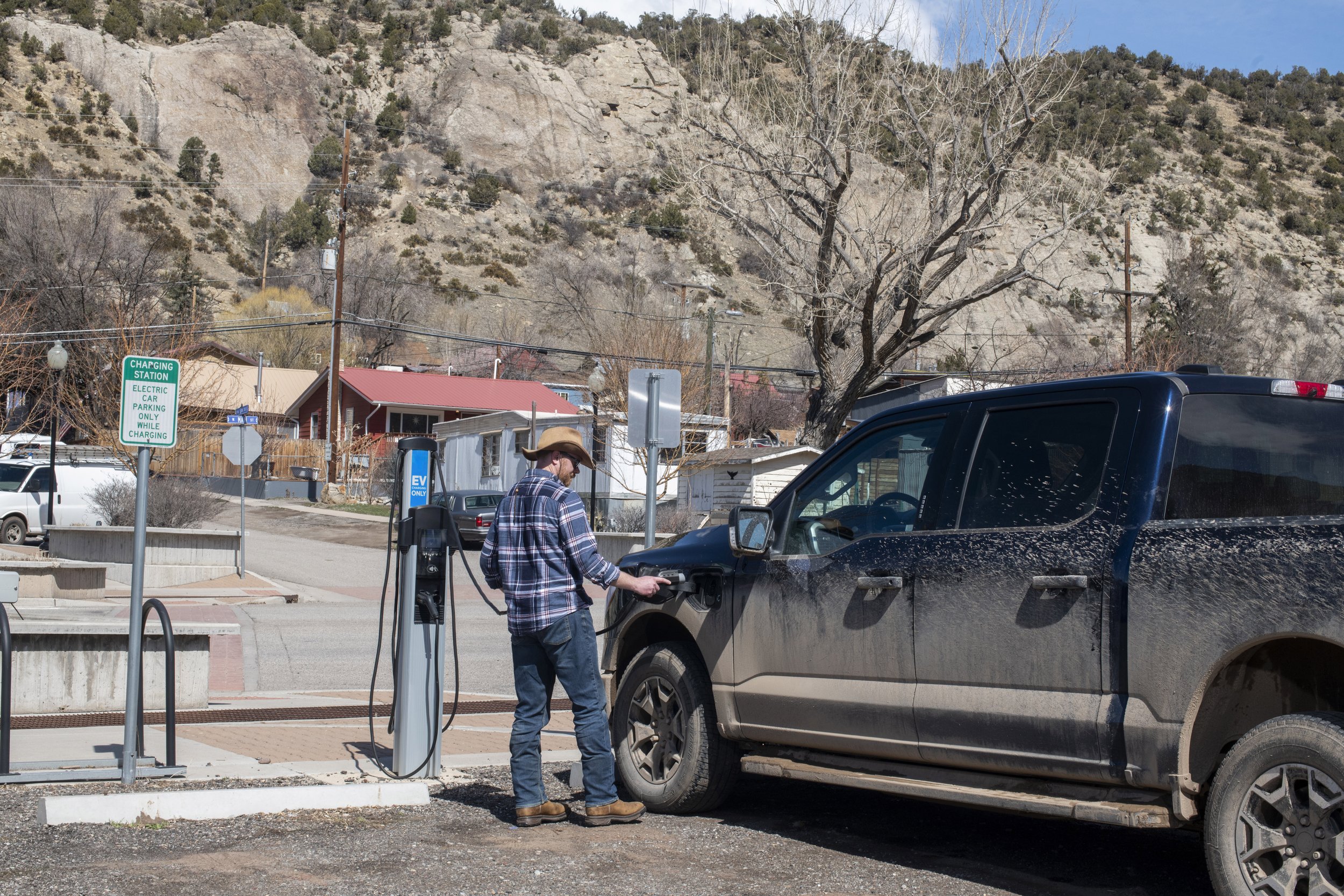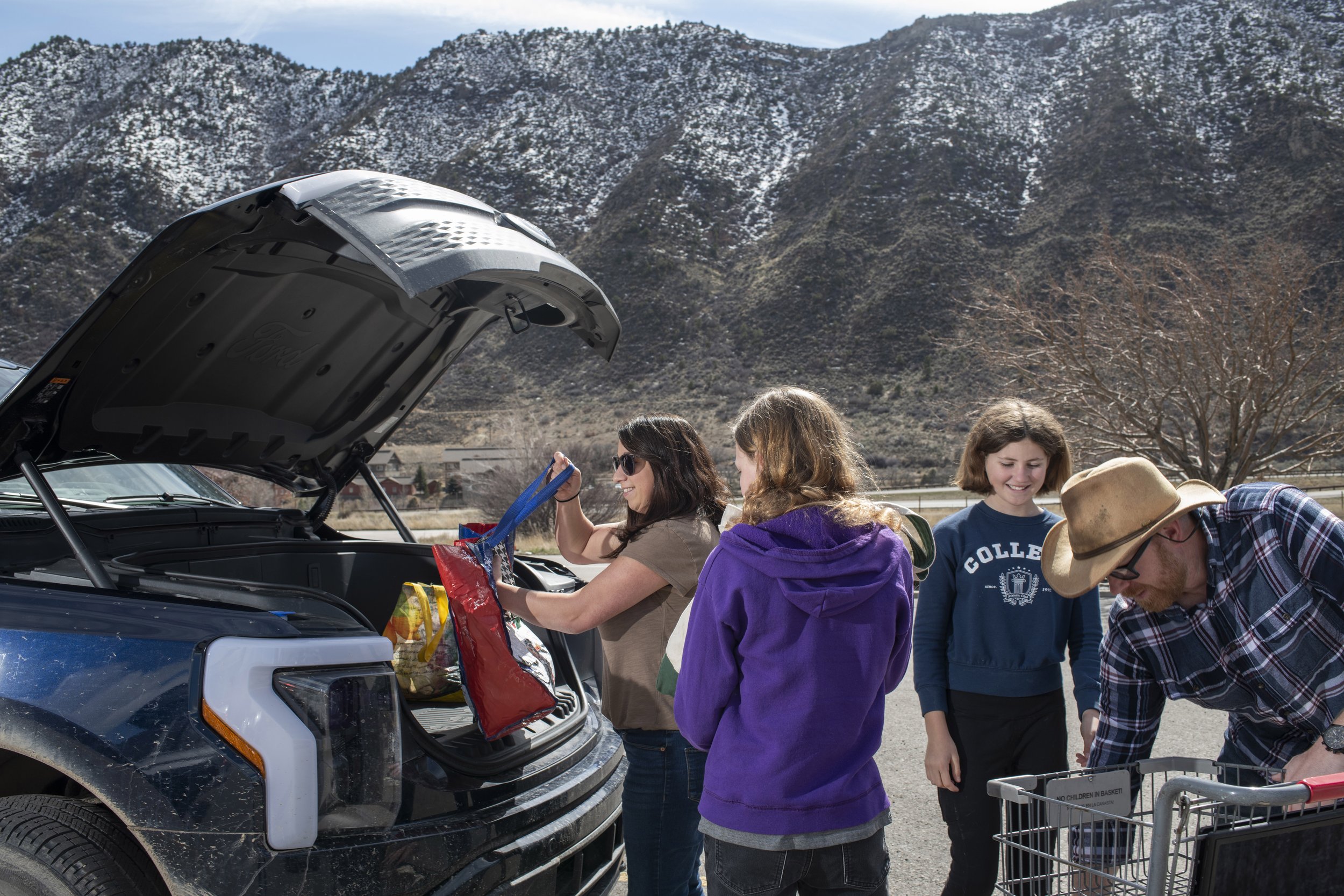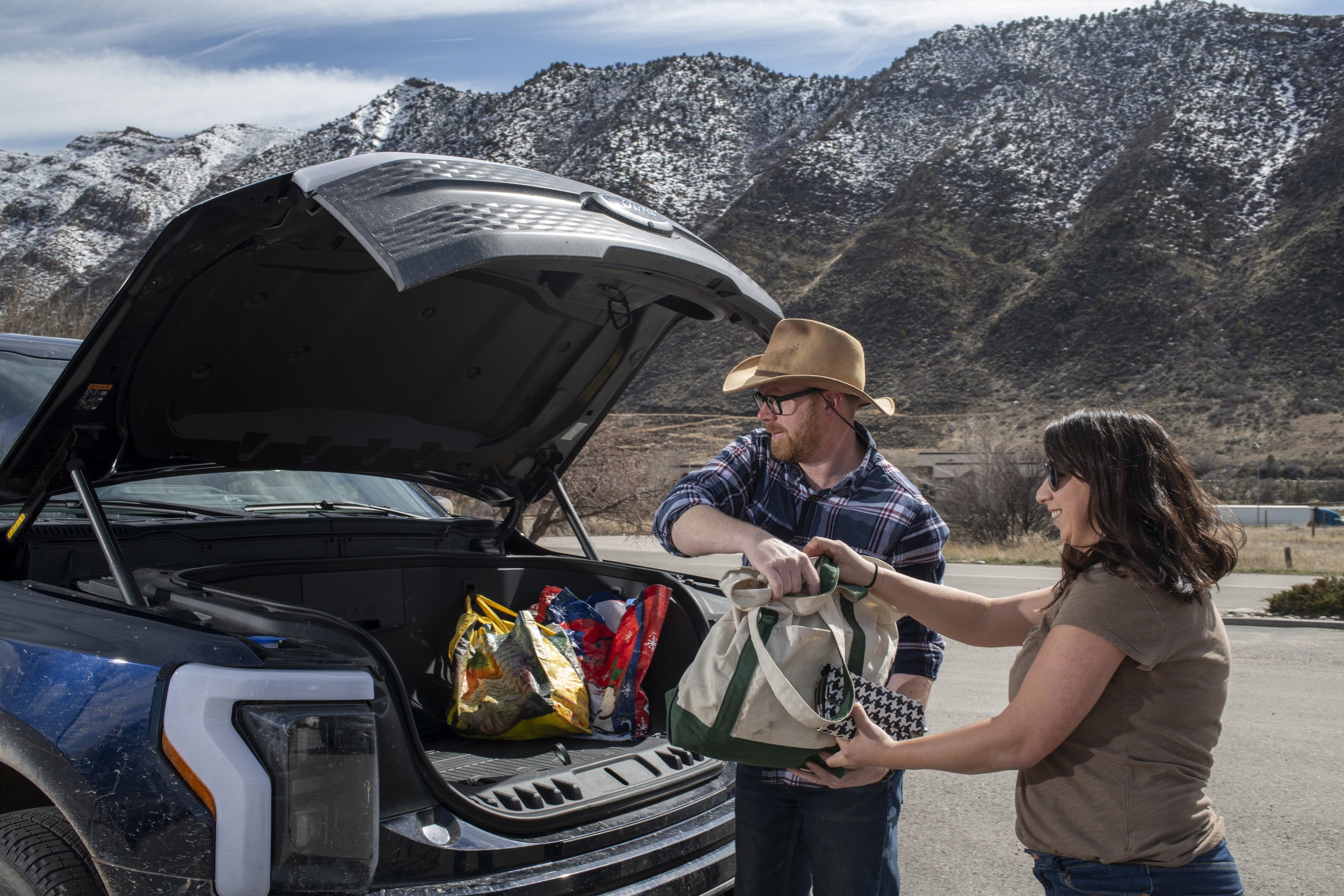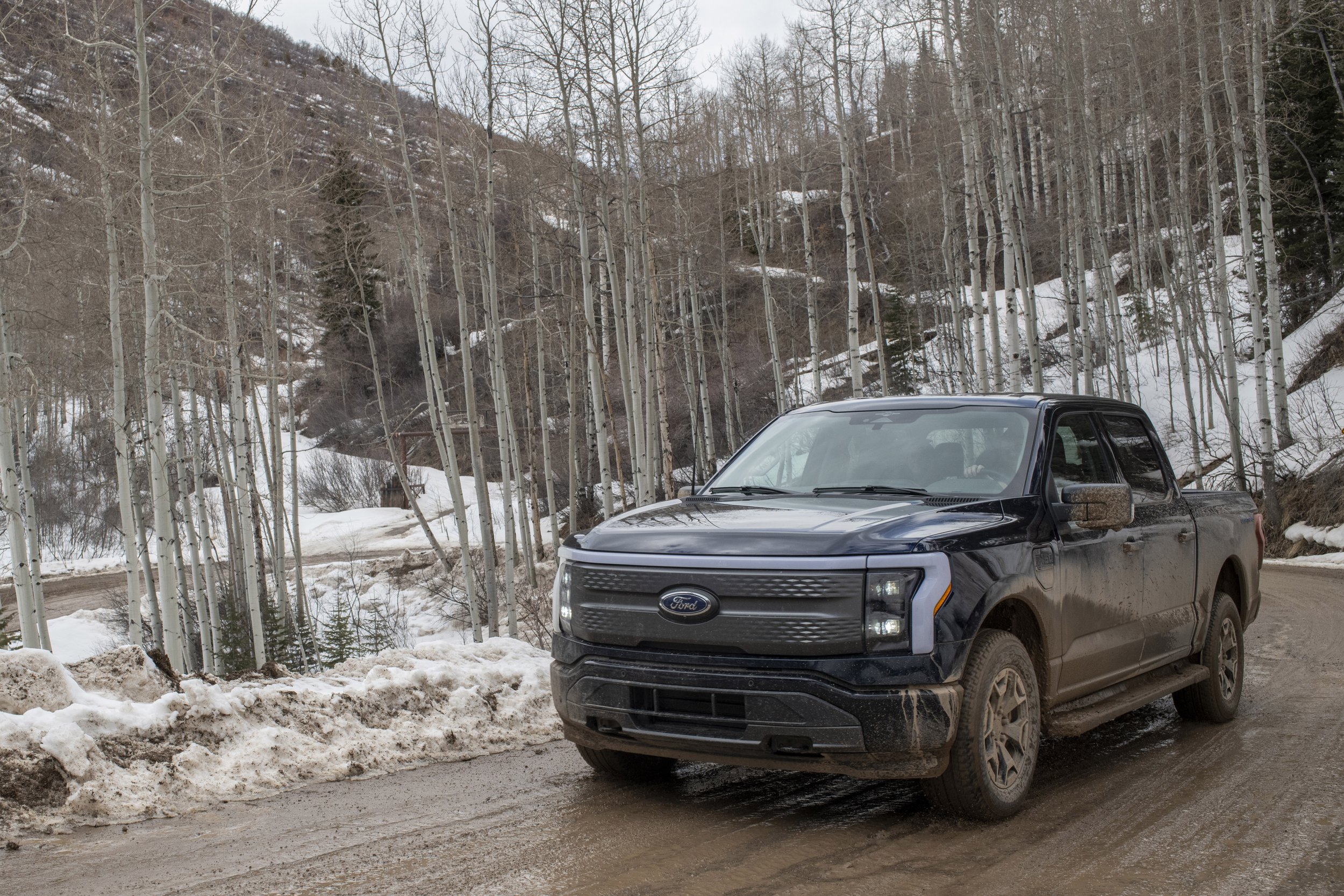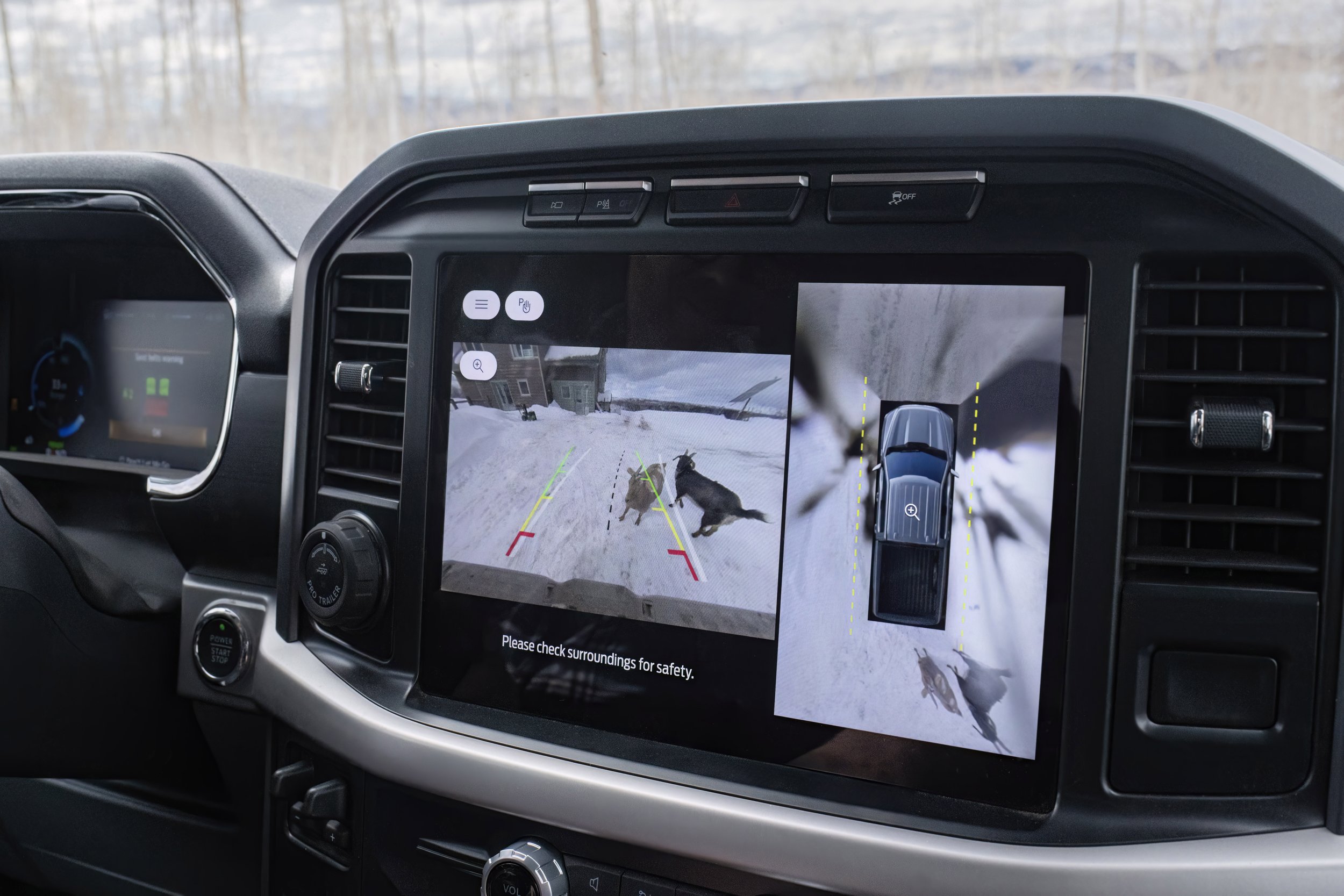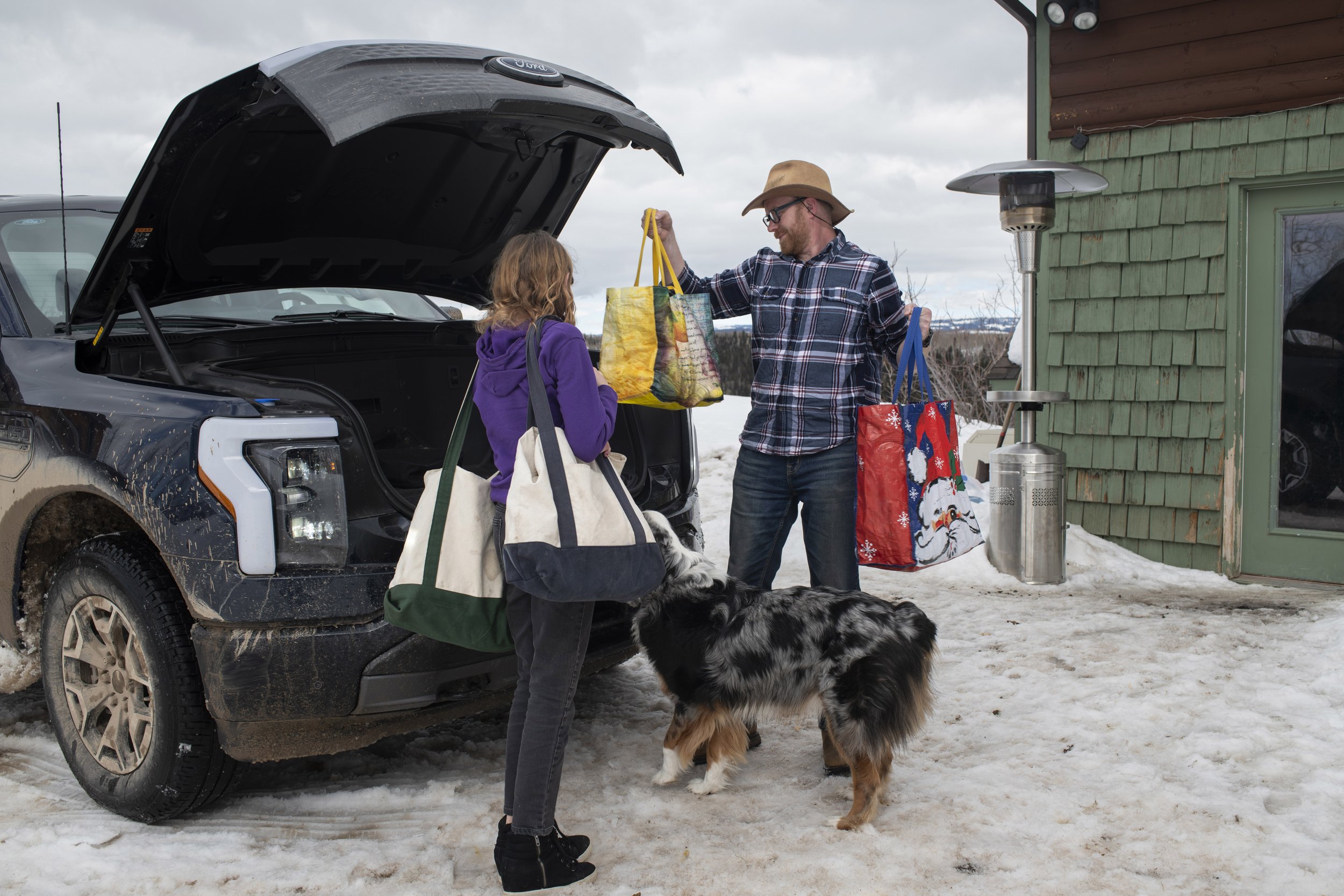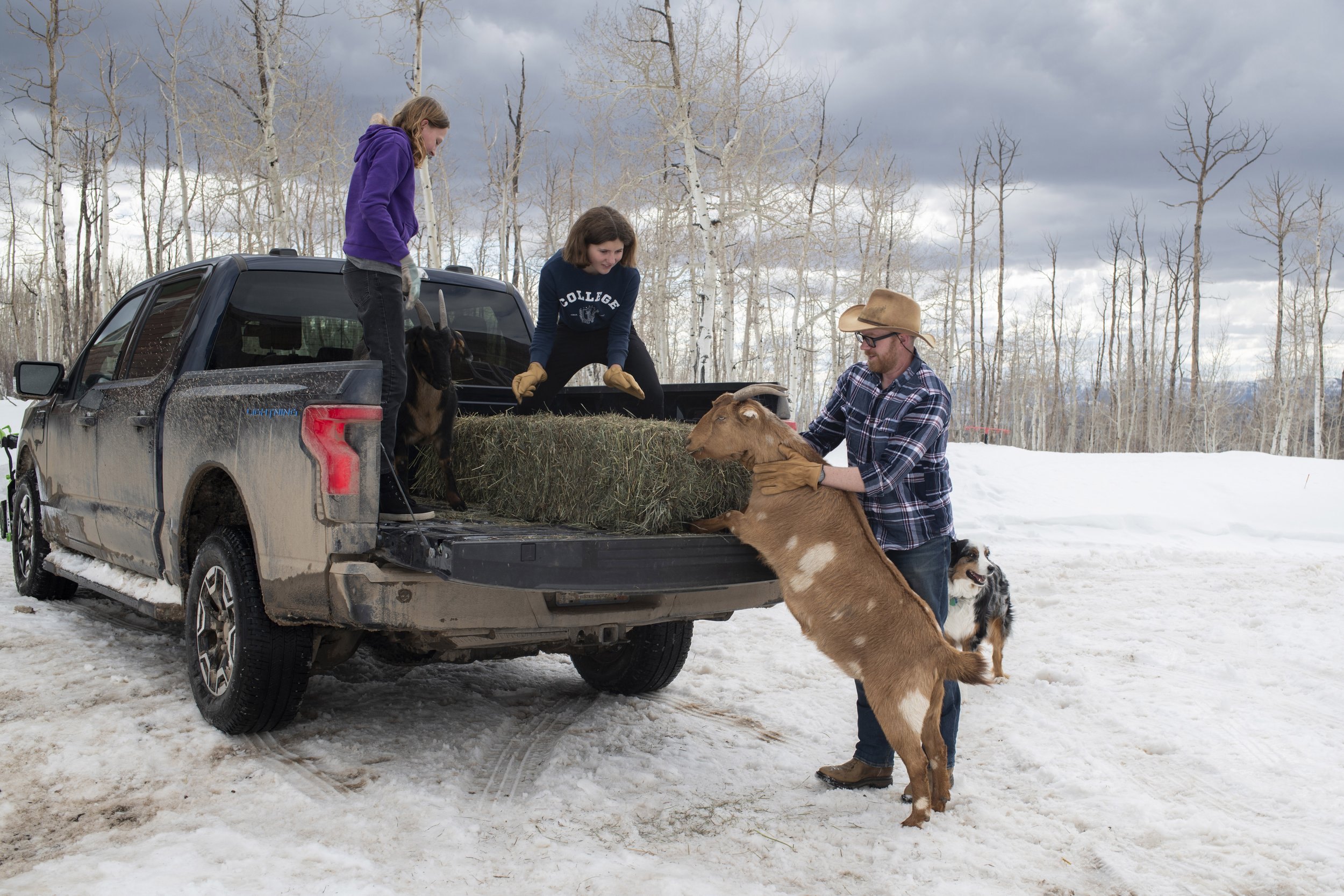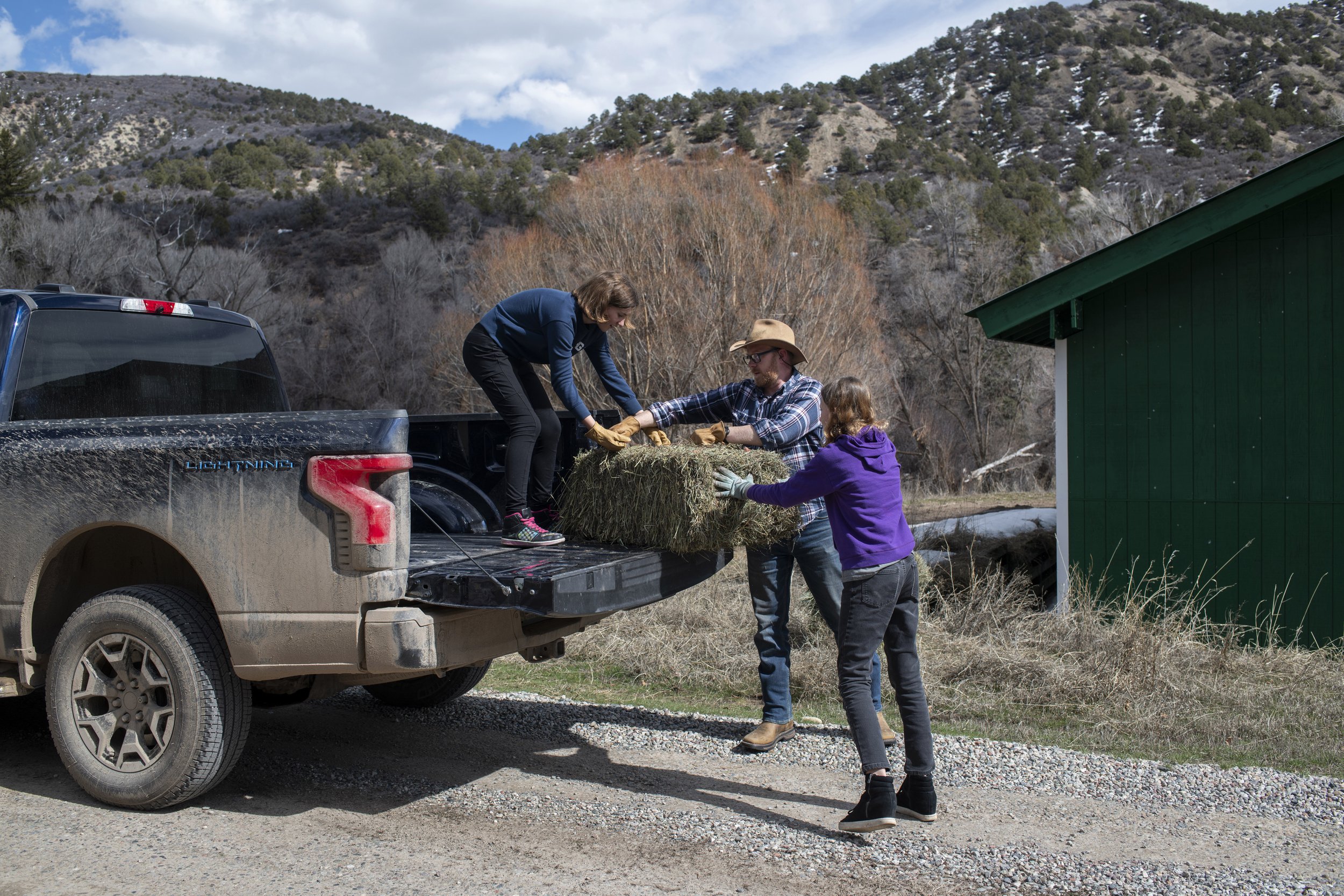Lightning in the Cold
Ben Westby knows a thing or two about living with an EV in the cold. As someone living off the grid full time since 2021, he not only powers his home with his own generation station, he also powers his Ford F-150 Lightning!
Westby, a school teacher and off-grid living proponent, has embraced EVs not for their trendy appeal, but for their practicality, cost savings, and resilience in his challenging environment. "If I can do it, anyone can," he says, acknowledging the raised eyebrows he encountered when he first brought his 2019 Tesla Model 3 to his remote property.
Life off-grid demands resourcefulness. Westby first relied on a 4kW solar and flooded lead system (it was actually 9 kW, but with those batteries, you can only really pull half the capacity without degrading them), supplemented by a propane generator for backup. “The propane costs $2,000 to fill the 1,000 gallon, so that’s the last resort,” said Westby. Eventually, they were able to upgrade to a full lithium 15 kW system. Water conservation is also a constant concern, with a domestic well and cistern supplying their needs. “It helped my kids learn to take short showers,” Westby jokes. But it was the arrival of his Ford F-150 Lightning that truly revolutionized his lifestyle.
"The Lightning made the most sense," Westby explains. He qualified for Colorado's Vehicle-to-X (V2X) program, which provided a $6,000 voucher towards the purchase. With his older truck trade-in, voucher, and Tesla sold, the Lightning only cost the Westby's $12,000. What a deal! The truck's hefty battery pack now serves as an integral part of his home's energy system, providing crucial backup power during storms that often disrupt solar generation.
The Lightning's capabilities extend far beyond keeping the lights on. Westby utilizes the truck for hauling firewood, essential for heating their home during the harsh winters. Its impressive ground clearance and towing capacity make it ideal for navigating the steep switchbacks and hauling logs, where the Model 3 and their runabout Nissan Leaf would suffer with lack of clearance. With the family’s home on farmland, the animals require feed: “I lost my engine!” jokes Westby, explaining a story when asking the feedlot to put his chicken feed in the Lightning’s front trunk. “They’re usually confused with the Lightning” he says, but also that it’s prime opportunity to talk about the truck itself.
But living with an EV in this extreme environment hasn't been without its challenges. Westby notes the differences in battery management between his Tesla and the Ford. "Tesla drains power to keep the pack in range," he observes, "while Ford lowers motor output instead." This requires a different driving approach, especially in snowy conditions. But for them, it works. Westby's unique experience has even caught the attention of Ford engineers, eager for feedback on real-world performance in such demanding conditions. He's become an unlikely advocate for EVs, proving their viability even in the most remote locations. Also, contrary to what many EV owners do, Ben typically only charges at work and not at home, using the truck as a power backup when plugged in at home.
His advice for future EV buyers? "V2G is a must," he emphasizes, highlighting the importance of vehicle-to-grid technology for off-grid living. Range remains a key consideration, while a reliable charging network is crucial for his wife, who, while appreciative of the Lightning's benefits, remains enthusiastic about the seamless integration of the charging network technology itself.
Westby's story is a testament to the adaptability of EVs and their potential to empower individuals seeking a sustainable, off-grid lifestyle. He's not just driving electric; he's living electric, proving that with careful planning and a bit of ingenuity, EVs can thrive even in the most challenging environments. In fact, Ben is so successful with his Lightning that Ford published one of their Shorthand Stories featuring him. Credit to Ford for the amazing pictures!
